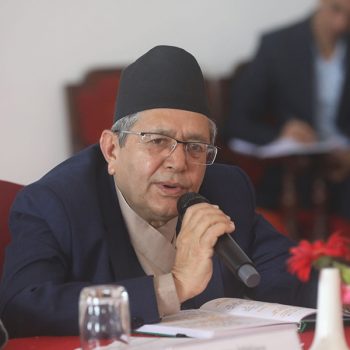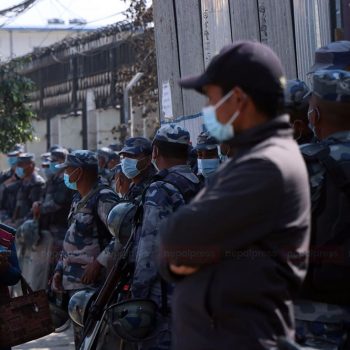Mental health issues emerging as a major health crisis

Mental health issues have become alarmingly high not only in Nepal but in the entire world. Changing lifestyle and hectic schedule among others are some of the reasons behind increasing cases of mental health.
The practice of stigmatizing the problems related to mental health is widespread in South Asian countries including Nepal in comparison to the western countries.
Dr Ira Naim, who has been working as a psychotherapist for more than a decade, is an expert Cognitive Behavorial Rehabilitation (CBR) and Eye Movement Desensitisation and Reprocessing (EMDR) therapy.
Deepak Poudel of Nepal Press held a conversation with Naim, a senior psychiatrist, practising in Dubai, to discuss superstitions related to mental health, public awareness and its need in the country like Nepal.
How do you assess the level of public awareness regarding mental health related issues especially in South Asian countries like Nepal?
Based on my experience, I have found many superstitions associated with mental health in South Asian countries like Nepal and Pakistan among other countries. It can be said that mental health itself has been ‘stigmatised’. Having said that, I have also been witnessing people raising awareness about mental health in comparison to the time I started my career in this field.
As you have said that the mental health sector has been stagmatised, how did you get into this field?
I am Pakistani by nationality. I was born and brought up in Pakistan. You may know that Pakistan is a very religious country, which to some extent applies to Nepal as well.
While growing up in Pakistan, I always used to wonder why people reacted in a certain way. The contrast between my response and the other person’s response to the same event made me more interested in understanding people. That’s how I got into this field I guess.
Why do you think the mental health sector is stigmatised in a certain way?
Lack of public awareness is the main reason for this. For instance, if you tell your other family members that I have a headache, stomach problem or a heart problem, in such a context they suggest you go to the hospital. However, if you tell them I have an ‘anxiety, I am experiencing ‘panic attack’ or let’s say ‘depression’, there will be a slim chance of them suggesting you to take help from a psychologist or psychiatrist.
We have an ill mentality that experiencing mental health related issues means completely losing their mind or being mad.
Movies either Nepali or Hindi have also been portraying mental health issues in the same way, compelling the people to think in a wrong way.
Losing complete control over the mind is just one issue related to mental health. In medical terms it ‘Schizophrenia’. We have to make people understand that there are a lot of other mental health related issues other than Schizophrenia.
As per your understanding, what do you think is necessary to solve mental health related issues here in Nepal?
Firstly, the government of Nepal should increase investment in this sector. This applies not only in Nepal but also in other countries. It is very significant how much resources any government has used to educate the common people about the problems related to mental health and to solve the problem. Talking about the current situation, I have found that there is a shortage of mental health experts in Nepal.
What can common people do to overcome any kind of mental health issue?
The very first thing is that people have to pay attention to their lifestyle. One should pay close attention to diet, must do daily exercise etc. Most of us already know these things. However, we don’t put it into practice. Apart from this, people have to be committed to themselves to cope with mental health problems.
Any person should be able to explore and accept their feelings. When you feel that something is bothering you, you should not hide it, but accept it and move towards solving it.
When a second person comes to tell us that he / she is experiencing some mental health related problems, how are we supposed to perceive them? What suggestions should we give to them?
What everyone should understand is that if you don’t have expertise in mental health issues, you should just listen to the second person. You are not supposed to give any advice based upon your understanding. In such conditions, the only thing you can do is just listen to them and ask them to take help from mental health experts.
You have come to Nepal from Dubai to attend an interaction titled ‘integration of mental health in primary care’. Why do you think it necessary to integrate mental health in primary care?
We have already discussed how issues related to mental health are being perceived by common people. We also talked about the superstitions associated with mental health issues. Similarly, we also mentioned how this particular sector is being stigmatised. In such a context, if we become able to integrate mental health in primary care, it could be a significant step in fighting against those stereotypical notions and in solving those mental health related issues.















